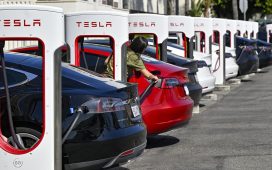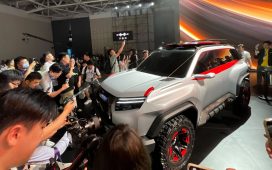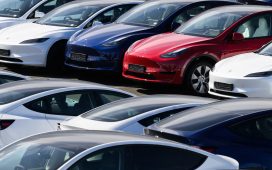Ford said it will sell only full-electric passenger cars in Europe by 2030 as part of a new growth strategy in the region.
The move will be supported by the company’s strategic alliance with Volkswagen Group to use VW’s MEB electric-car platform, Ford said in a statement on Wednesday.
Ford will invest $1 billion in a new electric vehicle manufacturing center at its factory in Cologne, Germany, as part of the electric-only transformation.
The automaker’s first European-built, mass-market full-electric car will roll off the lines in Cologne starting in 2023, Ford said. The factory, which currently builds the Fiesta small hatchback, will have the potential to build a second full-electric vehicle. Ford will continue Fiesta production in parallel with the new EV before eventually going all-electric.
“We successfully restructured Ford of Europe and returned to profitability in the fourth quarter of 2020. Now we are charging into an all-electric future in Europe,” Ford of Europe President Stuart Rowley said in the statement.
The announcement underlines Ford’s “commitment to Europe and a modern future with electric vehicles at the heart of our strategy for growth,” he said.
Rowley told Automotive News Europe last year that Ford’s MEB-based electric cars will be “highly differentiated” from VW’s ID range of battery-powered vehicles.
As an interim step to becoming all-electric, all Ford passenger vehicles sold in Europe will have battery or plug-in hybrid drivetrains by mid-2026.
Ford said it will also “substantially electrify” its commercial vehicle range.
The company’s commercial vans in Europe will be full-electric or plug-in hybrid by 2024 and the company expects two-thirds of commercial vehicle sales to be all-electric or plug-in hybrid by 2030. Ford gave no date for the end of combustion engine availability in its vans.








